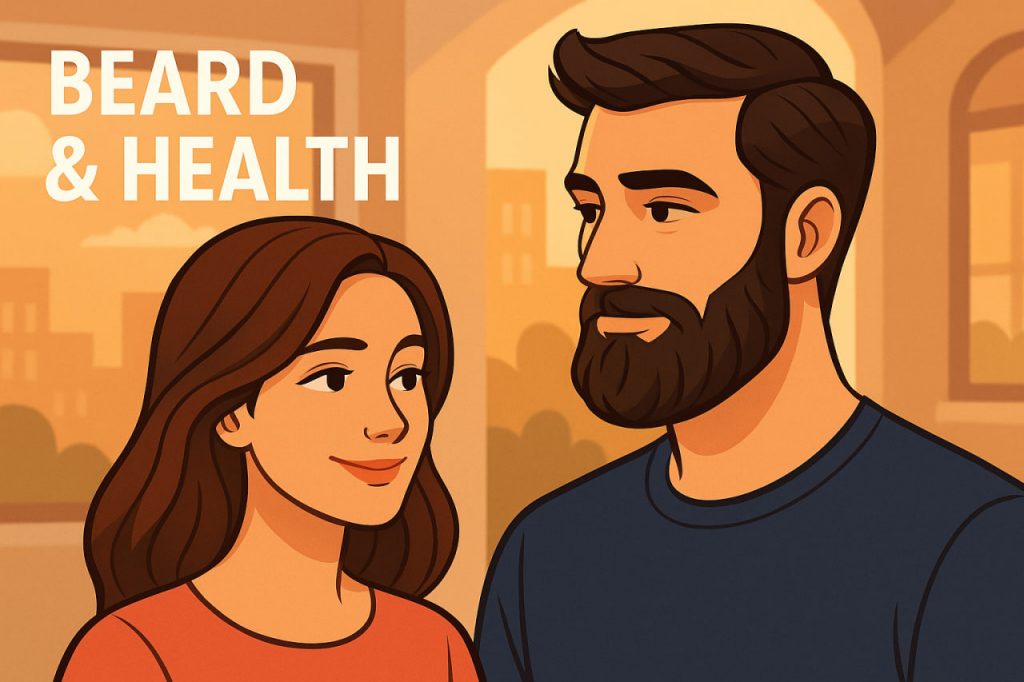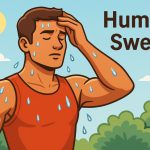Wearing a beard has been a cultural, religious, and personal choice throughout history, but in recent years, the question of whether beards provide health benefits has gained scientific interest. While some people view beards as simply a style preference, research suggests that facial hair can offer certain protective and psychological advantages. At the same time, beard hygiene is essential to prevent skin problems. Understanding how beards interact with the skin and environment can help determine whether growing a beard is beneficial for overall health.
Physical Protection and Skin Health
Beards can act as a natural shield for the skin. Facial hair protects against UV radiation, reducing sun exposure to the lower face and lowering the risk of sun-related skin damage. Additionally, a beard provides a barrier against cold air and wind, helping to prevent dryness and irritation. Dermatologist Dr. Samuel Ortiz explains, “Beards reduce friction and protect sensitive facial skin from environmental stress. For individuals with chronic skin irritation, a beard can act as a protective cushion.” Because shaving can cause razor burns, cuts, and ingrown hairs, not shaving can also help the skin remain smoother and less irritated.
Warmth and Respiratory Comfort
Beards can help maintain warmth in colder climates by trapping heat around the face, especially near the jaw and neck. This insulation effect can make breathing in cold air more comfortable, reducing irritation to the throat and lungs. Some researchers suggest that facial hair may also act as a mild filter, reducing the amount of dust and allergens that enter the mouth and nose. While this is not a substitute for medical masks or proper airway protection, it does show that facial hair can play a small role in improving respiratory comfort in certain environments.
Psychological and Social Benefits
Beards often carry cultural or symbolic meaning, which can influence self-esteem and confidence. Many individuals report feeling more secure, mature, or expressive when wearing a beard. Studies show that personal identity and self-image can positively influence emotional well-being. Psychologist Dr. Elena Fischer notes, “The way a person chooses to present themselves can affect how they feel internally. If wearing a beard aligns with someone’s sense of identity, it may support psychological health and confidence.” However, this is highly individual—what empowers one person may not be the same for another.
Hygiene Considerations
While beards can offer benefits, proper hygiene is crucial. Sweat, food particles, and environmental dust can accumulate in facial hair if not cleaned regularly. Without proper washing and grooming, bacteria can grow, leading to unpleasant odors or skin irritation. Daily cleansing with mild soap and warm water, along with occasional trimming and brushing, helps maintain both appearance and skin health. As with any personal care routine, consistency matters. If someone experiences persistent skin issues, it is recommended to consult a specialist.
Style, Culture, and Personal Choice
Whether a beard is beneficial ultimately depends on lifestyle, grooming habits, and personal preference. Some cultures celebrate beards as symbols of wisdom, masculinity, or spirituality, while others prefer clean-shaven appearances for professional or aesthetic reasons. The key is that wearing a beard is not inherently healthy or unhealthy—it becomes beneficial or problematic depending on care and individual skin type.
Interesting Facts
- Facial hair grows faster in warmer seasons due to increased blood circulation.
- Beards were historically worn by soldiers as protection from cold weather and dust.
- The average beard contains about 30,000 hairs.
- A well-groomed beard can help maintain natural skin moisture by reducing evaporation.
- Historical leaders often used beards to communicate authority and maturity.
Glossary
- UV radiation — Invisible rays from the sun that can damage skin.
- Ingrown hair — A hair that grows back into the skin instead of outward.
- Dermatologist — A medical doctor specializing in skin health.
- Insulation — The ability to retain or block heat transfer.
- Hygiene — Practices that maintain cleanliness and health.


